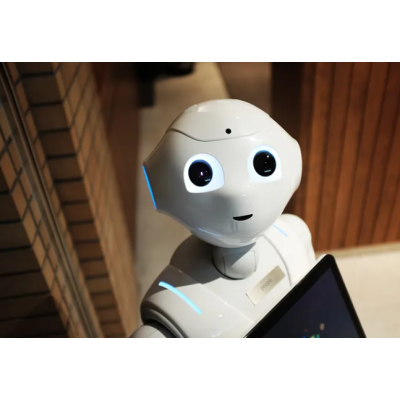

The use of trading bots has become increasingly popular in the financial industry, and it’s not hard to see why. With their ability to analyze vast amounts of data and execute trades in mere seconds, trading bots are incredibly efficient and accurate. However, this rise in automation has left many human traders wondering about the future of their profession. Will they be replaced by machines that can do their job faster and better? In this article, we’ll take a closer look at the potential impact of trading bots on human traders and provide strategies for staying ahead in the game.
First, let’s consider the advantages that trading bots have over human traders. One of the most significant benefits of trading bots is their ability to analyze data quickly and accurately. They can take in vast amounts of information and make trades based on that data in a matter of seconds. Trading bots can also operate around the clock, which means they can make trades even when human traders are asleep or otherwise unavailable. Finally, trading bots are not subject to human emotions like fear or greed, which can cloud a trader’s judgment and lead to poor decisions.
Despite these advantages, trading bots are not infallible. They lack the creativity, intuition, and adaptability that human traders possess. While trading bots can make trades based on pre-determined algorithms, they are not able to think outside the box and identify opportunities that may not be immediately apparent. In addition, trading bots are only as good as the algorithms they are programmed with. If the data changes or the market conditions shift, trading bots may not be able to adapt quickly enough to make the best trades.
So, what does this mean for human traders? Should they be worried about their future in the industry? The answer is no, but they do need to adapt to the changing landscape. One way to do this is by developing unique trading strategies that leverage their strengths. By identifying areas where they excel, traders can differentiate themselves from the competition and find success in the market. For example, a trader may be particularly skilled at identifying market trends or analyzing technical data. By focusing on these areas, they can develop a trading strategy that plays to their strengths and gives them an edge over trading bots.
Another way for human traders to stay ahead in the game is to learn how to work with trading bots. While trading bots may seem like a threat to human traders, they can also be used to enhance trading strategies. By learning how to incorporate trading bots into their trading strategy, traders can execute trades more efficiently and gain an edge in the market. Many financial institutions are already using trading bots in combination with human traders, which means that learning to work with trading bots is essential for staying competitive in the industry.
Staying up-to-date on industry trends and emerging technologies is also crucial for staying relevant in the industry. The financial industry is constantly evolving, and staying informed about the latest developments is essential for staying competitive. Attending industry conferences, reading trade publications, and networking with other professionals can all help traders stay informed and adapt to new trends.
Diversifying skills is another strategy for staying ahead in the game. While trading bots may be a threat to traditional trading jobs, they also create new opportunities in areas such as data analysis, programming, and quantitative analysis. By developing skills in these areas, traders can position themselves for success in the rapidly-evolving world of finance.
Finally, it’s important for traders to remain resilient in the face of change. The financial industry has always been subject to rapid shifts in technology and market conditions, and the rise of trading bots is just the latest challenge. By staying positive and adaptable, traders can weather any storm and come out stronger on the other side.
In conclusion, the rise of trading bots in the financial industry is undoubtedly a game-changer, but it doesn’t mean that human traders will become obsolete. Instead, it’s essential for human traders to adapt to the changing landscape by developing unique strategies, learning to work with trading bots, staying up-to-date on industry trends, diversifying skills, and remaining resilient in the face of change.
It’s also worth noting that trading bots are not a one-size-fits-all solution. While they may be useful for executing simple trades or monitoring market trends, they may not be able to replace the skill and intuition of a human trader when it comes to complex trading strategies. Ultimately, the future of trading is likely to be a combination of human expertise and machine intelligence, with traders who are able to leverage both emerging as the most successful.
As the financial industry continues to evolve and embrace new technologies, it’s essential for traders to stay ahead in the game. By embracing change, developing unique skills, and staying informed, traders can continue to find success in the ever-changing world of finance. Trading bots may be a game-changer, but they don’t have to be a threat. Instead, they can be an opportunity for traders to evolve and find new ways to succeed in the market.